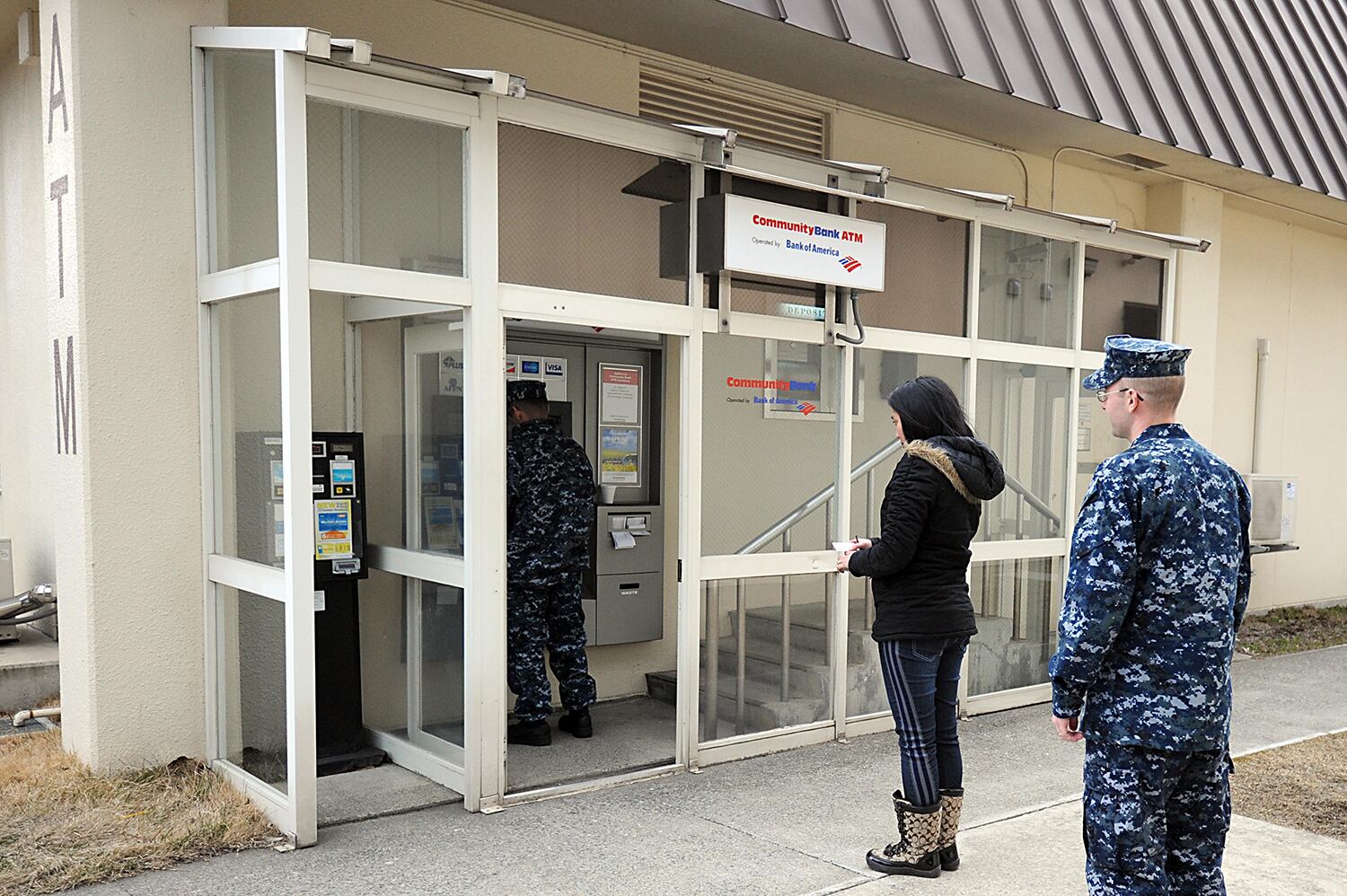As an active-duty overseas military veteran and community banker, I have personally witnessed a troubling trend on U.S. military bases: the shrinking availability of banking options to service members. Locally based community banks are being driven off bases by a quirk in federal law allowing tax-exempt credit unions to operate rent-free while the Defense Department does not extend this same treatment to banks — making it impossible for banks to remain on base.
Fortunately, Congress is considering legislation that would restore needed rent parity between banks and credit unions to preserve access to responsible and regulated financial services for military personnel at a time of significant economic stress.
Banks have operated for decades on military installations at no cost to the Defense Department. In fact, banks provide free services to service members, such as financial counseling, and to the government, such as cash for deployments. However, a 1996 law considers these services in-kind payment for leases and fees for credit unions — but not for banks.
RELATED

This disparity takes its toll as the cost of leases and utilities rise and banks are forced to make the difficult decision to cut their losses and leave the base. Bases with full-service banks have decreased more than 40 percent since 2004. And community banks make up 75 percent of on-base banks, meaning these are local institutions — not global megabanks — exiting military bases. While credit unions have defended the 1996 lease exemption Congress gave them as a big bank issue, the data show this is simply not the case.
In fact, military credit unions are the largest in the country and extending themselves beyond military families. Tax-exempt Navy Federal has expanded rapidly to more than $125 billion in assets, dwarfing community banks. Tax-exempt Pentagon Federal has partnered with Goldman Sachs to provide a nearly $1 billion loan to finance a luxury mixed-use real estate development in the nation’s capital while advertising that “anyone can join.” These institutions contrast sharply with the credit union industry’s founding purpose of serving people of modest means with a common bond, which originally justified credit unions’ other unfair competitive advantage — their tax exemption.
Ultimately, the costs of this military banking exodus are borne by service members and their families. As military banks are squeezed out due to the taxpayer-funded competitive advantages of credit unions, military personnel and their families lose out on the full range of financial services, and the quality and innovation that results from choice and competition.
As a young enlisted soldier without personal transportation, I had no choice but to use the financial services located on base when I was stationed at Fort McClellan in Alabama and at the Robinson Barracks and Airfield Nellingen in Germany. When I wanted to buy a car, the only choice for a loan was the one on-base bank, and I was obliged to agree to whatever terms and conditions they offered out of pure necessity. I was limited to one bank; today, many soldiers are limited to one credit union. The declining availability and diversity of on-base financial services is presenting the same problem to more and more service members.
Service members have also increasingly sought assistance from the predatory lenders often positioned just outside the base gates that offer high-interest, short-term loans. In fact, active-duty military personnel obtain payday, tax-refund, and pawn-shop loans at significantly higher rates than their civilian contemporaries.
RELATED

Leveling the competitive playing field with military banks and ending the growing credit union monopoly on military installations will strengthen the financial position of military personnel while limiting the debt traps, high interest rates, and financial emergencies that frequently plague service members. Little wonder that last year the Military Coalition — a consortium of 34 military and veteran service organizations representing more than 5.5 million service members and their families — endorsed the change.
Fortunately for military personnel, Congress will debate legislation again this year to end the disparate treatment of banks and credit unions on military bases. An amendment to the 2021 National Defense Authorization Act would require the Defense Department to treat credit unions and banks the same with respect to rent. In other words, if the department waives or charges rent for credit unions, it would be required to do the same for banks.
This equitable treatment language is included in the Senate version of the defense spending bill, but not the House companion. To end the banking exodus from military bases and restore financial services access and competition for service members on base, Congress should fully pass this measure and send it to the president to be signed into law. During this time of unprecedented economic stress, financial favoritism should not put service members at a disadvantage.
James Smith is president and chief operating officer of FMS Bank in Greeley, Colo.
Editor’s note: This is an Op-Ed and as such, the opinions expressed are those of the author. If you would like to respond, or have an editorial of your own you would like to submit, please contact Military Times managing editor Howard Altman, haltman@militarytimes.com.





